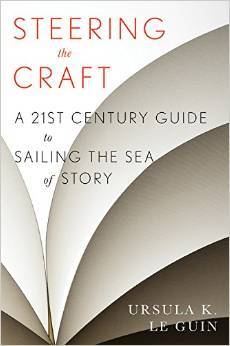Honestly, I wasn’t super enthused going into this one. Matt Bell’s Refuse to be Done was the first title from my TBR that I found at a bookstore in Chicago and that was enough for me to declare my errand done rather than force my hosts to languish in the bookstore longer than necessary. (Not that they would have called it languishing, but still.) I finished it on a bus between Albany and the Port Authority Bus Terminal.
This book just isn’t for me. Only a few of the tips or tricks in here are ones that I could apply to my own writing, and the promise of the title (“how to write and rewrite a novel in three drafts”) is 100% a bait and switch. If you follow Bell’s advice, you will definitely write more than three drafts, but “three drafts” is a much more enticing promise than “three stages.”
The three drafts promised in the title boil down to:
- What Bell calls the “exploratory draft,” or what I think of as “the NaNoWriMo draft.”
- The “rewrite, don’t revise” draft, whose goal and purpose seems a bit unclear and muddled. I think part of the reason the book has no table of contents is because it would become very clear how little meat and potatoes Bell has to offer for this section. (The chapter on the exploratory draft is close to 70 pages; this one is around 16 pages. The last chapter is around 50 pages.) As far as I can tell, this is where he thinks you should carry out major structural and story revisions. But then he sums up his advice as:
When in doubt, rewrite instead of revise.
How do you know if you’re rewriting versus revising?
Some clues: the presence of new typing (or at least retyping) and the absence of merely copying and posting.
When in doubt, rewrite instead of revise.
Trust me.
And at first blush that seemed like the exact opposite of what he was trying to convey in this very brief chapter? “Just spit and polish that dreadful scene you have instead of fundamentally changing it.” After multiple re-reads and several days of reflection, I think what he means is something like: write over scenes from scratch instead of just trying to tweak what’s there. The problem is that “rewriting” and “revising” never get very clear definitions; it’s the equivalent of being told “cribble, don’t tralapse.” This chapter might as well be called “draw the rest of the fucking owl.”
3. The last stage, or draft, sounds like a “spit and polish” draft where the focus is on language rather than narrative, but again he doesn’t really give it a name or clear purpose so who knows.
In addition to the bait-and-switch title and the “draw the rest of the fucking owl” vagueness in the middle, like any book on writing there is the obligatory list of the author’s personal pet peeves presented as Objectively Bad Writing mixed in with helpful exercises. At least at this point in my life I know to just skim those sections rather than live or die by them.
To his credit, Bell cites a lot of interviews and articles from other authors describing their own process. He also gives a lot of concrete examples of well-done prose and unique narrative structures for curious readers to investigate, as well as in-depth reference books on more niche elements of style. As usual, finishing one non-fiction book on my TBR only led to me adding others.
Really, this would have been better as a library read than a purchase. The only reason I don’t regret plunking down money on this book is that it went to support a local indie bookstore. Refuse to Be Done might be the book that gets someone started on their very first novel, but I am not that person.




